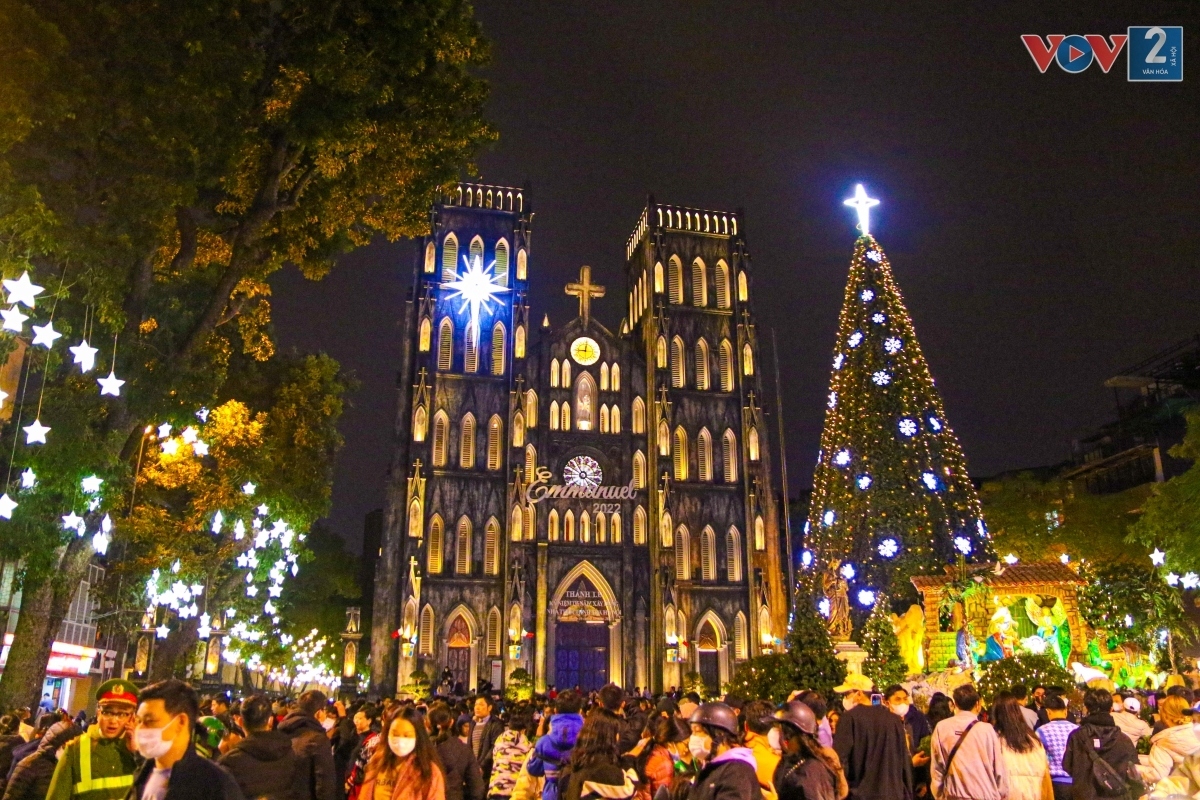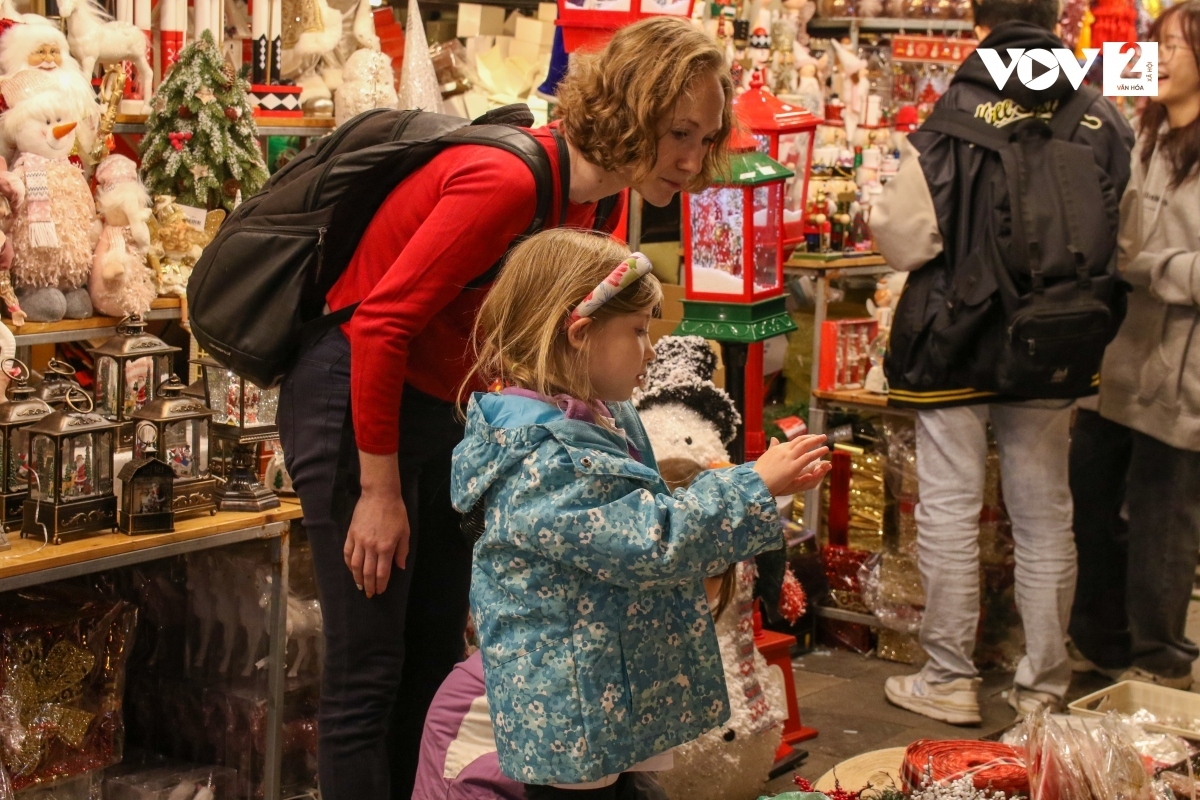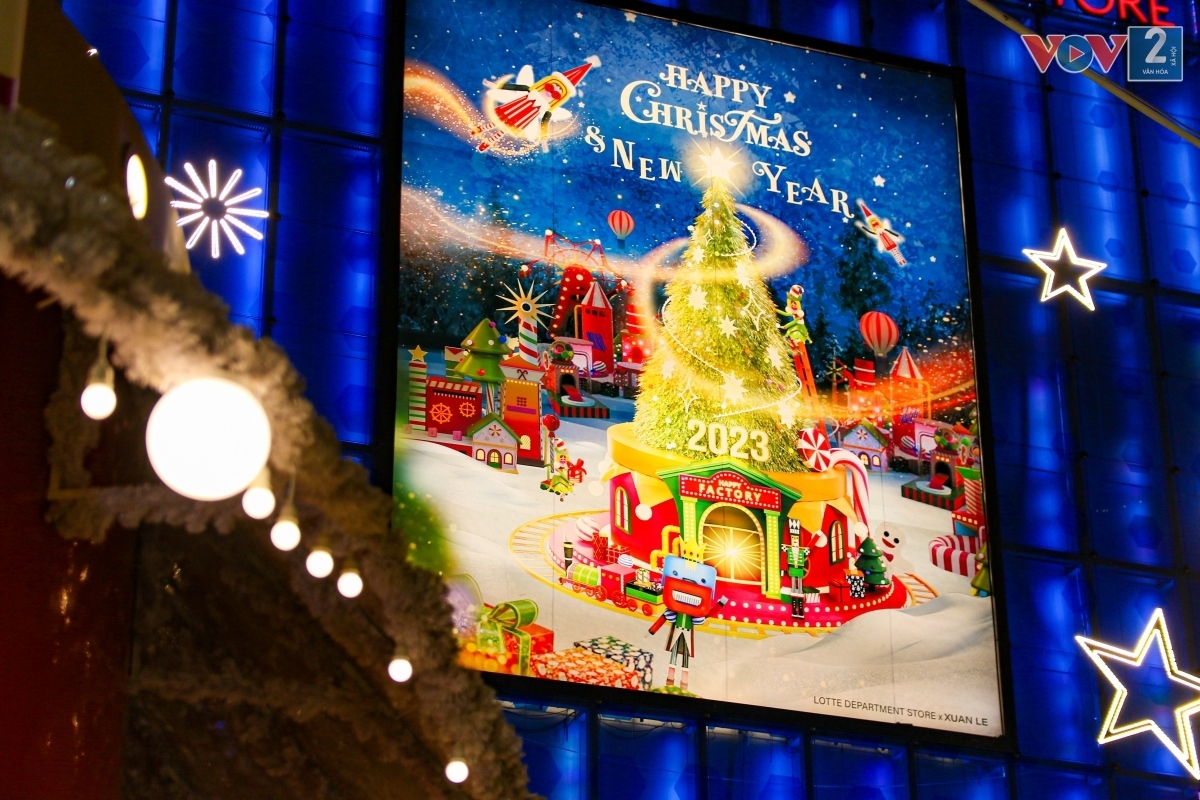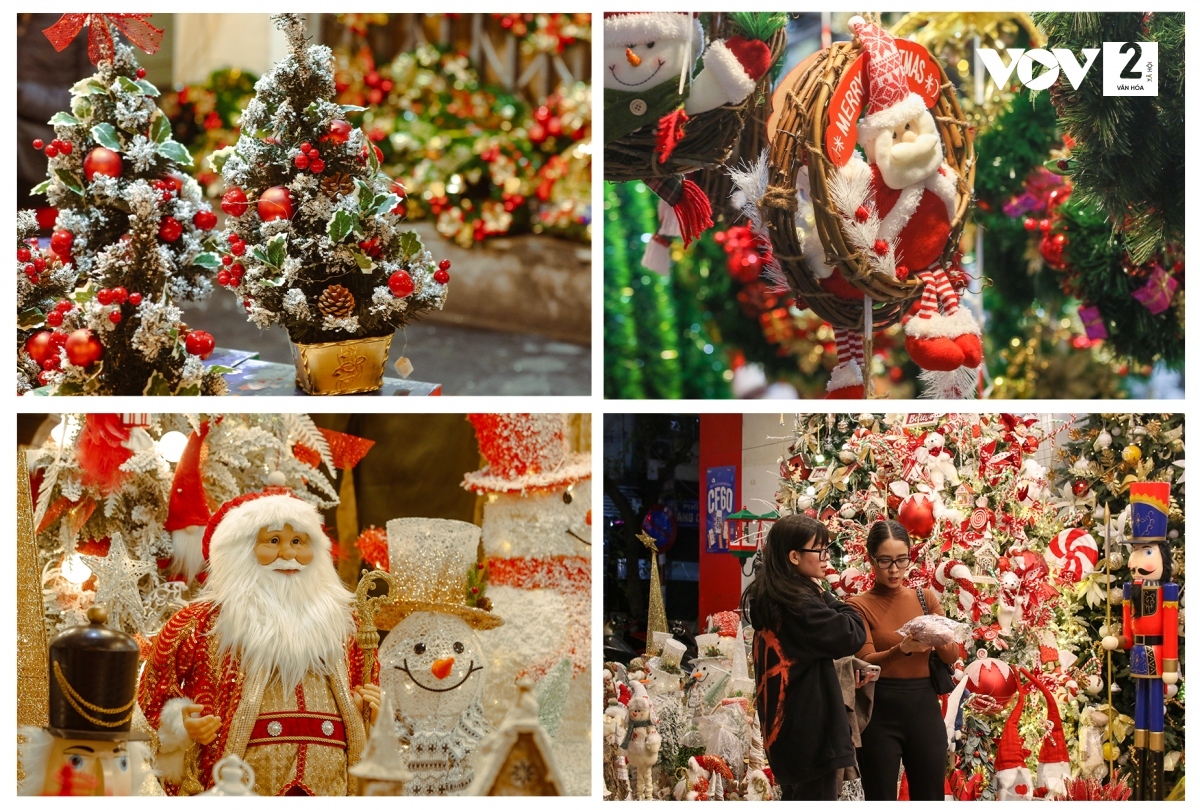Vietnam enjoys post-pandemic period with festive Christmas celebrations
VOV.VN - With the last two Christmas celebrations in Vietnam being disrupted due to some level of restrictions being imposed due to the spread of the COVID-19 pandemic, 2022 marks a belated return to normality with booming commerce mixed with a festive atmosphere for local people to enjoy.
The last fortnight has seen major cities across the country excitedly prepare to welcome Christmas, with festive elements found around almost every corner.
Primary schools and nurseries can be heard blaring out traditional Christmas songs to welcome arriving students, shopping centres have launched a range of promotions to lure in customers looking to buy gifts, and many businesses and residential buildings have put up an array of festive decorations to mark the occasion.
Whilst these aspects of the holiday season have become more prevalent during December in Vietnam over the last few years, many traditional aspects of the festivities have so far failed to emerge in the way Vietnamese people celebrate the holiday. Indeed, it is common for many local people to think that Christmas Day is actually on December 24th as opposed to December 25th as this date coincides with the end of the Christmas sales. I recall one year seeing staff hurriedly removing festive decorations at Royal City in Hanoi on Christmas Day as the promotions had ended, with decorations for Tet being put up only a few days later.
Whilst the present-giving and commercial part of the holiday has become an annual occurrence throughout the world, the religious aspect of the festive period has largely been lost, with this theme being mirrored in Vietnam.
That being said, the last decade has seen an increasingly globalised world, with Vietnam’s tech-savvy younger generations able to pick up on trends emerging from London just as easily as if they were emerging from Long An.

The increasing commercialisation of Christmas is not only a uniquely Vietnamese phenomenon, but can be found in many societies globally, particularly those in the West. This shift can be traced all the way back to 1931 when Coca Cola first used Santa Claus as part of its advertising campaign, painting him wearing red and white to match their brand colours.
During my lifetime, I have seen first-hand how Christmas traditions gradually became less prevalent. Growing up in England, people were always aware that Christmas was a Christian festival, with many activities which have their roots in religion such as carol singing and Midnight Mass proving popular among the general population. However, participation in these religious-based activities has declined, certainly over the past decade.
Whilst I cannot speak for every Western country, the growing indifference people in England have to the religious side of Christmas can certainly be seen in tandem with the general drop in religious belief.
Statistics show that 59.3% of the population of England and Wales in 2011 were Christian, with this falling to 46.2% in 2021. The decline of religious traditions at Christmas can therefore be seen in correlation with the growing religious apathy in Western countries such as the UK.
Whilst I’m sure these elements will not completely disappear from Christmas celebrations entirely, I don’t find it surprising that they have not emerged as a mainstream part of Christmas activities in Vietnam.
At this time of year many Western countries choose to play Christmas songs on the radio or broadcast festive shows and movies on television to get viewers into the holiday spirit. In many of these films, characters search for the meaning of Christmas.
Although officially meant to celebrate the birth of Jesus, Christmas has taken on an entirely different meaning over the past few decades due to the decline in terms of the number of Christian believers coupled with the increase in consumerism during the holidays.
Most people typically associate Christmas with gift giving, but the deeper meaning behind this is one that has not been lost.

Family gatherings, sharing, and spending time with loved ones are activities that transcend cultures and borders. In fact, these themes have been spread and amplified by the way the festival has become increasingly popular among non-Christians throughout the world.
These values are therefore the positive aspects of Christmas which have been exported from Western countries and have been taken up with enthusiasm in places like Vietnam.
While Vietnam is predominantly Buddhist or local people follow folk traditions such as ancestor worship, celebrations for Christmas typically involve family gatherings, special meals, and present giving. Giving and sharing are now the primary themes of Christmas, not just in Vietnam, but in many countries throughout the world, including those which can trace celebrations back nearly 1,000 years.

Whilst the world has become smaller thanks to the increased connectivity that comes through Internet usage, our traditions can still teach us something about different cultures and serve to bring us together.
With major cities nationwide now ready for Christmas, both local people and tourists to Vietnam can sample the festive atmosphere by heading to spots such as St Joseph Cathedral in Hanoi to enjoy the holiday period or alternatively attend a Christmas concert held at the Opera House in Ho Chi Minh City.
In addition, plenty of Christmas events are being held specifically for children across the country to ensure that people throughout the nation enjoy a pleasant holiday season.
Although Christmas traditions passed down through generations in Western countries have yet to find popularity among the Vietnamese population, there remains plenty of positive aspects of the festivities which can still be found in the way local people celebrate Christmas.
It is my hope that these themes will be legacy of the global spread of Christmas and local people can enjoy spending time with their loved ones after enduring a turbulent few years.

